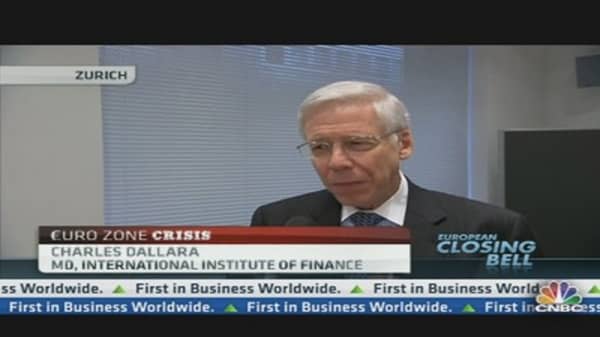Cyprus, rather than Spain, Italy or Greece, poses the biggest sovereign risk to the euro zone, according to Charles Dallara, the managing director of the Washington-based bank lobby group, the Institute of International Finance (IIF).
"I think Cyprus is, on a country level, the most serious risk the euro zone faces today, not Spain, not Italy, not Greece," Dallara told CNBC in Switzerland on Tuesday.
"I see a disconnect between Cyprus and its euro zone partners, and I see little sense of how to bridge the gap there. This concerns me, and I also think the risk of complacency, of underestimating the potential contagion impact if you mismanage Cyprus, is quite high," he added.
(Read More: As Euro Crisis Fades, Fears of Complacency Emerge)
Cyprus is rated junk or speculative grade by all three major credit ratings agencies, and the country lost access to market funding in April 2011.
The country needs 17.5 billion euros ($23.2 billion) to plug at budget gap and recapitalize its banks, which took huge losses on their exposure to Greek debt. While that might be a small amount in comparison to the likes of Greece, it is hefty given Cyprus's annual gross domestic product of around 18 billion euros.




